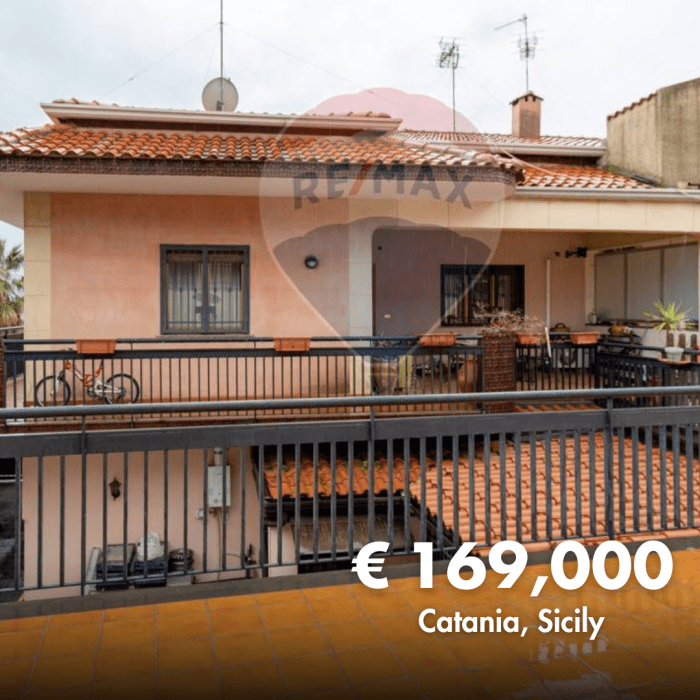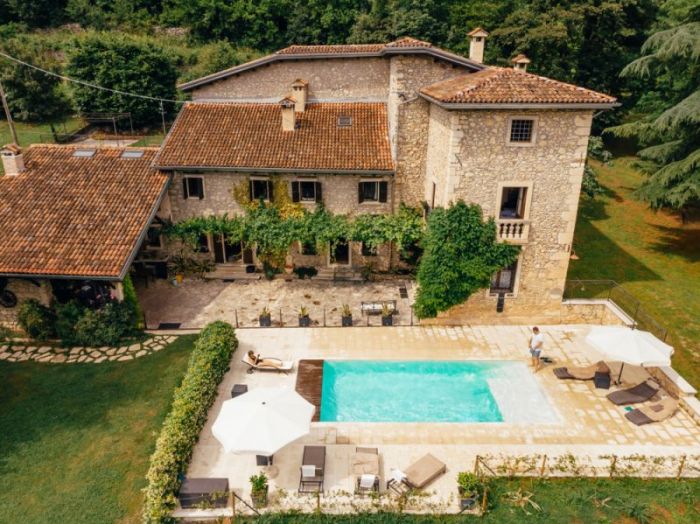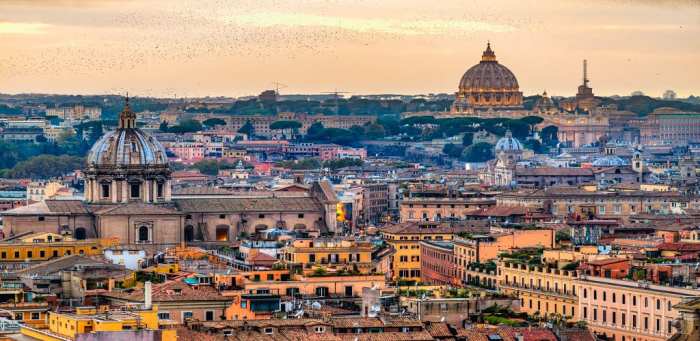How to buy a property in Italy? It sounds daunting, but with the right information, it can be an exciting adventure! Buying property in Italy offers a chance to own a piece of history, a stunning villa overlooking the Tuscan countryside, or a charming apartment in a vibrant Roman neighborhood. This guide breaks down the process, from understanding the market and finding the perfect property to navigating the legal and financial aspects and beyond.
Let’s explore the possibilities together.
This guide will walk you through every step, from researching different property types and locations to understanding the costs involved and completing the purchase. We’ll cover finding reputable agents, navigating the Italian legal system, and even managing your property once you’ve made your purchase. Get ready to discover the secrets to successfully buying your dream Italian property.
Understanding the Italian Property Market

Source: propertyguides.com
Buying property in Italy can be a rewarding experience, offering a chance to own a piece of history and enjoy the stunning Italian lifestyle. However, navigating the Italian property market requires understanding its nuances and potential challenges. This section will guide you through the key aspects to consider before making your purchase.
Types of Italian Properties
The Italian property market offers a diverse range of options, catering to various budgets and preferences. From charming city apartments to sprawling countryside villas, finding your ideal Italian home depends on your needs and desired lifestyle. The following table provides an overview of some common property types:
| Property Type | Typical Location | Price Range (EUR) | Advantages/Disadvantages |
|---|---|---|---|
| Apartment | Cities, towns | 50,000 – 1,000,000+ | Advantages: Convenient location, lower maintenance; Disadvantages: Smaller space, less privacy. |
| Villa | Rural areas, coastal regions | 200,000 – 5,000,000+ | Advantages: Privacy, spaciousness, potential for land; Disadvantages: Higher maintenance, potentially remote location. |
| Farmhouse (Casale) | Rural areas, countryside | 150,000 – 1,000,000+ | Advantages: Character, potential for renovation, rural lifestyle; Disadvantages: Often require significant renovation, potentially isolated. |
| Rustico | Rural areas, often needing renovation | Variable, often lower than villas or farmhouses | Advantages: Potential for significant value increase after renovation, unique character; Disadvantages: Requires substantial renovation work, potentially complex legal processes. |
Costs Associated with Buying Property in Italy
Beyond the purchase price, several additional costs are associated with buying property in Italy. It’s crucial to factor these expenses into your budget to avoid unpleasant surprises.
These costs typically include:
- Notary fees: These fees cover the legal work involved in transferring the property title. They typically range from 1% to 3% of the purchase price.
- Agency fees: If you use a real estate agent, their commission is usually paid by the buyer and can range from 3% to 5% of the purchase price.
- Taxes (Imposta di registro, IVA, etc.): These vary depending on the property type and the region. Expect to pay several thousand euros in taxes.
- Land Registry fees (Catasto): These cover the registration of the property transfer in the land registry.
- Mortgage fees (if applicable): If you’re taking out a mortgage, expect additional fees from the lender.
- Legal fees: Hiring a lawyer is highly recommended to ensure a smooth and legal transaction. Fees vary depending on the lawyer and the complexity of the transaction.
Regional Comparisons of the Italian Property Market
Property prices and lifestyles vary significantly across different regions of Italy. The following table offers a comparison of three popular regions:
| Region | Average Property Price (EUR) | Lifestyle | Investment Potential |
|---|---|---|---|
| Tuscany | High (especially in popular areas) | Rural charm, rolling hills, vineyards, art and culture | Generally high, strong tourism industry |
| Umbria | Medium to High | Picturesque countryside, hilltop towns, peaceful atmosphere | Good, growing popularity as a tourist destination |
| Sicily | Lower than Tuscany and Umbria (generally) | Coastal beauty, beaches, vibrant culture, rich history | Increasing, particularly in coastal areas; potential for renovation projects |
Finding a Property

Source: squarespace-cdn.com
So, you’re ready to buy property in Italy – fantastic! Finding the right place can feel like a treasure hunt, but with a strategic approach, you’ll be sipping espresso on your Italian terrace in no time. This section will guide you through the various avenues for discovering your dream Italian property.Finding your perfect Italian property involves exploring several avenues, each with its own advantages and disadvantages.
A well-rounded search strategy will typically involve a combination of these methods.
Methods for Finding Italian Properties
Finding a property in Italy often requires a multi-pronged approach. While relying on a single method might work, combining several significantly increases your chances of success.
- Real Estate Agents: Working with a reputable local real estate agent can streamline the process. They have access to off-market listings and possess in-depth knowledge of local regulations and market conditions. However, remember that agents typically charge a commission, usually paid by the seller.
- Online Portals: Numerous online portals specialize in Italian properties. These offer a vast selection and allow you to filter by location, price, and property type. However, it’s crucial to verify information independently.
- Word-of-Mouth: Networking within your social circles or expat communities can uncover hidden gems. Local connections can often provide valuable insights and access to properties not publicly advertised.
Reputable Online Portals and Real Estate Agencies
Several online portals and agencies consistently provide reliable services. Remember to always do your own due diligence before engaging with any agency or making an offer.
- Online Portals: Examples include Immobiliare.it (a major Italian real estate portal), Idealista.it (another popular choice with international reach), and JamesEdition (specializing in luxury properties). These sites often have English language options.
- Real Estate Agencies: Researching agencies with a strong local presence is key. Look for agencies with positive client reviews and a clear understanding of the legal intricacies of Italian property transactions. Many international agencies also operate in Italy, offering services tailored to foreign buyers.
Property Research and Due Diligence
Thorough research and due diligence are paramount before making any offer. This stage protects your investment and avoids potential legal pitfalls.This involves verifying property details, checking for any outstanding debts or legal issues associated with the property, and understanding local planning regulations. It’s advisable to engage a lawyer specializing in Italian property law to assist with this critical stage.
Ignoring this step could lead to significant financial and legal problems down the line. Independent surveys and checks are also essential to confirm the property’s condition and value. A detailed understanding of the property’s history and any potential issues will allow you to make an informed and confident offer.
The Buying Process

Source: wantedinrome.com
Buying property in Italy can seem daunting, but with careful planning and the right guidance, it’s a manageable process. This section Artikels the key steps involved, from initial offer to final ownership. Remember, seeking professional advice from a lawyer specializing in Italian property law is highly recommended throughout this process.
- Making an Offer: Once you’ve found your dream property, you’ll make a formal offer to the seller. This usually involves a written proposal specifying the purchase price and any conditions (e.g., subject to survey). A deposit, often around 10%, is typically paid at this stage as a sign of good faith. This deposit is usually held in escrow by a lawyer or notary until the completion of the sale.
- Preliminary Contract (Compromesso): If the seller accepts your offer, you’ll move to a preliminary contract, the compromesso. This legally binding document Artikels all the terms of the sale, including the purchase price, payment schedule, and completion date. It’s crucial to have a lawyer review this document thoroughly before signing.
- Due Diligence: Before finalizing the purchase, it’s vital to conduct thorough due diligence. This involves verifying the property’s ownership, checking for any encumbrances (mortgages, liens), and ensuring all necessary permits and documentation are in order. A lawyer can assist with this process.
- Mortgage Approval (if applicable): If you’re financing the purchase with a mortgage, you’ll need to secure loan approval from an Italian bank. This involves providing documentation to the bank, including proof of income and creditworthiness. The mortgage application process can take several weeks or even months.
- Final Deed (Rogito): The final step is the signing of the rogito, the final deed of sale, before a notaio (notary). This is a crucial step that legally transfers ownership of the property to you. All payments are made at this time, and the notaio ensures all legal requirements are met.
- Registration: After the rogito is signed, the notaio will register the transfer of ownership with the Italian land registry ( Catasto). This completes the legal process, and you officially become the owner of the property.
The Role of the Notaio, How to buy a property in italy
The notaio (notary) plays a central role in Italian property transactions. They are independent public officials who ensure the legality and fairness of the sale. Their responsibilities include drafting the compromesso and the rogito, verifying the legal status of the property, collecting and disbursing funds, and registering the transfer of ownership with the land registry. Choosing a reputable notaio is crucial for a smooth and legally sound transaction.
They act as an impartial third party, protecting the interests of both the buyer and the seller.
Financing Options
Buyers can finance their Italian property purchase through various methods.
- Cash Purchase: A cash purchase simplifies the process, eliminating the need for mortgage approvals and associated delays. However, it requires significant upfront capital.
- Mortgages: Mortgages are readily available from Italian banks, though interest rates and lending criteria may differ from those in other countries. Securing a mortgage requires a thorough application process, including credit checks and proof of income. It’s advisable to compare offers from multiple banks to find the most favorable terms.
Post-Purchase Considerations: How To Buy A Property In Italy

Source: lawyersitaly.eu
Buying a property in Italy is exciting, but the journey doesn’t end at the signing. There are several important post-purchase steps to ensure a smooth transition into Italian property ownership. Understanding these processes will help you avoid potential complications and ensure you’re fully prepared for the responsibilities involved.
Registering the Property
After successfully completing the purchase, you’ll need to register the property in your name with the Italian land registry ( Conservatoria dei Registri Immobiliari). This is a crucial step that legally establishes you as the owner. The process typically involves submitting the necessary documentation, including the deed of sale ( atto di compravendita) and other relevant paperwork, to the appropriate registry office. The timeframe for registration can vary, but it’s advisable to engage a notaio (notary) who can guide you through this process and ensure all documents are correctly filed.
Expect some administrative delays; patience is key. A successful registration will result in an updated property title in your name.
Ongoing Costs of Property Ownership
Owning a property in Italy comes with ongoing costs. These are important to factor into your budget. These costs can vary depending on the property’s location, size, and value.
- Property Taxes (IMU and TARI): The Imposta Municipale Propria (IMU) is a municipal property tax based on the property’s cadastral value. Tassa sui Rifiuti (TARI) is a tax for waste collection services. Both are annual payments.
- Condominium Fees (Spese Condominiali): If your property is part of a condominium, you’ll pay monthly or annual fees covering building maintenance, cleaning, and insurance.
- Utilities: These include electricity, water, gas, and potentially heating. Bills are typically paid quarterly or monthly.
- Home Insurance: It’s highly recommended to have home insurance to protect against damage, theft, and liability.
- Maintenance and Repairs: Unexpected repairs and maintenance can arise. Budgeting for these is essential.
Managing Your Italian Property
Once you own your Italian property, you’ll need to decide how to manage it. Several options exist, each with its own advantages and disadvantages.
- Self-Management: This offers greater control but requires time and effort to handle maintenance, repairs, tenant communication (if renting), and dealing with local authorities.
- Property Management Company: Hiring a property management company handles many aspects of property management, relieving you of the burden but incurring additional fees.
Illustrative Examples

Source: jimcdn.com
Let’s bring the process of buying property in Italy to life with some concrete examples. We’ll walk through a typical purchase scenario, visualize a potential property, and examine a sample budget. This will help solidify your understanding of the practical steps involved.
A Typical Property Purchase Scenario
Imagine Maria and Giovanni, a couple from London, dreaming of a Tuscan escape. They begin their search online, focusing on properties in the Chianti region. After several months of browsing listings on Italian real estate portals and working with a local
- agente immobiliare* (real estate agent), they find a charming farmhouse needing some renovation. The agent helps them navigate the initial viewings, negotiating the purchase price, and understanding the legal complexities. They secure a mortgage from an Italian bank, after providing the necessary documentation, including proof of income and credit history. The
- compromesso di vendita* (preliminary sales agreement) is signed, followed by a period of due diligence, including property surveys and legal checks. Finally, after several months, the
- atto notarile* (final deed) is signed at the notary’s office, officially making them homeowners in Italy. The entire process, from initial search to finalization, took approximately a year.
A Visual Representation of a Typical Italian Property
Picture a two-story stone farmhouse nestled amongst rolling hills, bathed in the warm Tuscan sun. The property boasts terracotta roof tiles, characteristic of the region. Climbing ivy partially covers the walls, lending a rustic charm. The ground floor features a spacious kitchen with a large, open fireplace, perfect for cozy evenings. Adjacent is a dining area and a living room with exposed wooden beams.
Upstairs, two bedrooms with ensuite bathrooms offer privacy and comfort. Outside, a well-maintained garden filled with olive trees and lavender bushes surrounds the house, offering stunning views of the surrounding countryside. A small swimming pool nestled in a corner provides a refreshing escape during the hot summer months. A paved driveway leads to a small, attached garage.
The overall aesthetic is one of rustic elegance, blending seamlessly with the natural beauty of the Italian landscape.
Hypothetical Budget for Purchasing a Property in Tuscany
The following table Artikels a hypothetical budget for purchasing a property in Tuscany, Italy. Costs can vary significantly depending on location, property size, and condition. This budget represents a mid-range scenario. Remember to consult with professionals for accurate estimations.
| Cost Item | Estimated Cost (€) | Percentage of Total | Notes |
|---|---|---|---|
| Purchase Price | 300,000 | 60% | Price of the property itself. Can vary greatly depending on location and size. |
| Legal Fees | 15,000 | 3% | Includes notary fees, registration taxes, and legal counsel. |
| Agency Fees | 9,000 | 1.8% | Typically paid by the buyer, usually around 3% of the purchase price. |
| Mortgage Costs (if applicable) | 5,000 | 1% | Initial fees and arrangement costs associated with securing a mortgage. |
| Renovation Costs (estimated) | 50,000 | 10% | Significant variations depending on the extent of renovation required. |
| Other Expenses (survey, utilities connection etc.) | 11,000 | 2.2% | Covers various smaller expenses associated with the purchase and setup. |
| Total Estimated Cost | 400,000 | 100% |
Ultimate Conclusion

Source: overseaspropertyalert.com
Buying property in Italy is a significant undertaking, but with careful planning and a good understanding of the process, it can be a hugely rewarding experience. Remember to do your research, engage professionals, and allow plenty of time. From the initial search to the final signing, each step brings you closer to owning a piece of the Italian dream.
So, take a deep breath, gather your resources, and get ready to begin your Italian property journey!